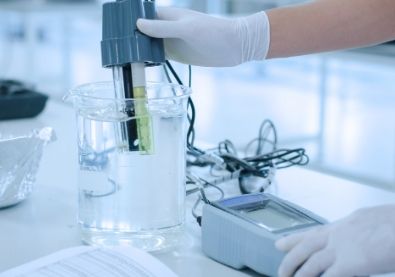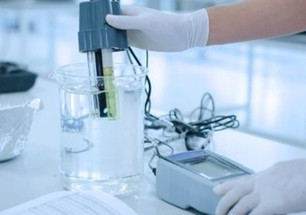Posted by Chrom Tech on 15th Oct 2025
Why You Should Filter Mobile Phase HPLC

Proper mobile phase filtration is one of the most critical yet overlooked steps in HPLC. Filtering your mobile phase helps extend instrument lifespan, improve reproducibility, and prevent costly downtime. Whether preparing solvents in-house or using pre-mixed solutions, taking time to ensure your mobile phase is particle-free leads to more reliable chromatographic performance and consistent results.
Protecting Your HPLC Pump
The HPLC pump is the heart of your chromatography system—and also one of its most delicate components. Unfiltered solvents can introduce microscopic particles that accelerate wear on pistons, seals, and check valves. Over time, this leads to irregular baselines, pressure fluctuations, and shortened pump life.
To prevent such damage, it is strongly recommended to filter all solvents through a 0.45 µm membrane filter before use. This step removes particulates that could otherwise enter the system and degrade pump performance.
Using Pre-Mixed Solvents
Many laboratories prefer pre-mixed solvents from reputable manufacturers, as these are filtered and quality-checked prior to packaging. This eliminates the need for in-lab filtration and reduces the risk of introducing contaminants during manual preparation. LC or LC/MS-grade pre-mixed solvents can be used directly on your instrument with confidence.
When filtering solvents in the lab, several variables—such as improper glassware cleaning or incompatible membrane selection—can introduce contamination rather than prevent it. Therefore, whenever possible, rely on pre-mixed, pre-filtered solvents to maintain consistency and purity.
Filtering When Using Additives
Many modern HPLC and LC/MS methods employ mobile phase additives such as buffering agents or ion-pairing reagents. When preparing these solutions manually, filtration becomes essential.
- Solid additives: When dissolving salts or buffers into the mobile phase, always filter after mixing. Solid residues and undissolved particulates can quickly block check valves or restrictor tubing.
- Liquid additives: For concentrated liquid additives, filtration after mixing helps remove microprecipitates that may form at higher concentrations.
Neglecting to filter buffered mobile phases can introduce particulates that lead to pressure spikes, reduced column performance, and even detector noise.
Preventing Microbial Growth in Mobile Phases
Microbial growth in mobile phases can contaminate pumps, columns, and detectors—causing chemical and physical blockages. This is especially problematic in buffered aqueous solutions or systems operating near neutral pH. To prevent microbial contamination:
- Avoid “topping off” solvent reservoirs; always start with a clean bottle.
- Prepare small batches of buffered mobile phase—just enough for one or two days of analysis.
- Store concentrated stock buffers in the refrigerator and dilute fresh working solutions as needed.
- Add an antimicrobial agent to the buffer when appropriate.
Summary
Filtering your mobile phase is a simple, preventative step that protects your investment in chromatography instrumentation. While pre-mixed LC-grade solvents are already filtered and ready to use, any solution prepared in-house—particularly those with added buffers or salts—should be carefully filtered before use. This ensures consistent flow, prevents clogging, and maintains the long-term performance of your HPLC system.
For additional guidance on solvent filtration, membrane selection, or HPLC system maintenance, contact Chrom Tech’s technical team. We’re here to help optimize your chromatography workflow.
Frequently Asked Questions About Filtering Mobile Phases
Do I need to filter high-purity or pre-mixed solvents?
No. LC- and LC/MS-grade solvents from trusted suppliers are already filtered before packaging and can be used directly in your system.
What pore size filter should I use for mobile phase filtration?
A 0.45 µm membrane filter is typically sufficient for removing particulates that can damage HPLC pumps and columns.
How can I prevent microbial contamination in my mobile phase?
Use fresh buffers, avoid topping off solvent bottles, and refrigerate concentrated stock solutions. You can also add an antimicrobial agent for long-term stability.

